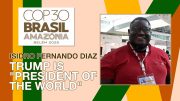
Hong Kong’s persistent legal persecutions of media tycoon Jimmy Lai on national security charges will continue unabated, as it is planning to adjourn Lai’s case to mainland Chinese courts.
Although Beijing has insisted on its right to take over “complex” cases involving foreign nations since implementing a national security law in 2020, it so far has not done so. Local courts in the former British colony, where judges still wear wigs and observe English common law, prosecute many security cases.
Yet Lai’s foreign-collusion case is wearing out Beijing’s patience for Hong Kong’s legal traditions of transparency, precedent, judicial independence, and the rights of the accused.
Those values were exhibited by the courts last week, when the city’s highest court decided that Lai, a pro-freedom activist and founder of the now-defunct Apple Daily newspaper, could hire an eminent U.K.-based lawyer to defend him.
Hong Kong Chief Executive John Lee, a Beijing appointee, responded by asking China’s top legislative body to intervene and stop overseas-based lawyers from getting involved in such cases.
Hong Kong’s sole representative on that body then hinted that defendants who could not find local lawyers could have their cases adjourned to Chinese courts, where national security trials are faster and more secretive.
“If such difficulties really arise, they can be sent back to the mainland for trial,” said Tam Yiu-chung, a member of the National People’s Congress (NPC) Standing Committee.
Although Tam said such action would be required only in a “special case,” his remarks threaten Hong Kong’s judicial independence, which has been often quoted as a reason for its success as a financial center.
If local courts break with the mainland, they risk being overruled or having their cases taken over by the Beijing regime. The controversial matter of adjourning cases to mainland courts was at the crux of historically huge and occasionally violent demonstrations in 2019 that eventually led to Beijing enforcing the security law and arresting Lai. The extradition legislation that would have permitted Hong Kong to transfer suspects in some criminal cases to the mainland has since been withdrawn.
“This will likely be viewed as a threat in the Hong Kong courts and legal profession to go along with Beijing’s demands or else, even when those demands are articulated indirectly through a supporter or the media,” observed professor of law and international affairs Michael Curtis Davis of Jindal Global University in India, who was a law professor at the University of Hong Kong.
“We can expect these sorts of threats to continue and be used in other high-profile cases when Beijing wants to pressure the courts or others to do its bidding.”
When questioned about whether a request had been made to transfer Lai’s case to the mainland, a spokesman for the government’s Security Bureau alluded to Article 55 of the national security law.
That section of the law permits Beijing to use its jurisdiction over cases involving the four crimes mentioned in the law — secession, subversion, terrorism, and foreign collusion — under certain conditions, such as being “complex due to the involvement of a foreign country.” Hong Kong has so far accused at least 88 people with allegations linked to those four crimes.
It can be said that Lai, 75, is the highest-profile defendant still contesting charges brought under the law, which also restricts defendants’ access to bail and jury trials.
Lai, who prosecutors say collaborated with foreign countries by urging for international sanctions against Hong Kong and China, faces a possible life sentence if he is convicted in a trial.
Lai brought in Timothy Owen, a lawyer based in London, to defend him. Owen has appeared in various high-profile cases in Hong Kong, and his clients include Rurik Jutting, a former banker convicted of murdering two women in his Wan Chai apartment in 2014.
Meanwhile, the Hong Kong chief executive justified his stance in asking the NPC to issue an “interpretation” of the security law as vital on the grounds that the Chinese government was unable to guarantee that foreign lawyers have no conflict of interest or have not been coerced or compromised by foreign powers.
“The interpretation will target one specific group of people and one specific issue and given the far-reaching implications, we need to sort this out,” Lee said, elaborating that foreign lawyers based in the city would not be targeted by the ban.
Ronny Tong, senior counsel and a member of the government’s advisory Executive Council, said it would be difficult to envision a situation in which a defendant could not find Hong Kong based-representation among the some 1,600 practicing lawyers in the city.
“I find it unthinkable to suggest that because of a shortage of available lawyers … a case would have to be transferred to the mainland for trial,” Tong said.
The move to urge the Chinese legislature to prohibit overseas lawyers from working on national security cases has stoked fears among the foreign business community, said George Cautherley, vice chairman of the International Chamber of Commerce in Hong Kong.
“Each time you do something like this, you increase concerns that this will happen not just for national security law cases,” he said. “But it’s difficult to say if it would prevent investment from coming into the city as that would depend on the level of risk people are prepared to take on for their businesses.”
Other prominent figures who have been charged under the new national security law imposed by the Beijing communist regime include Cardinal Joseph Zen, who was charged with failing to register a now-defunct fund for pro-democracy protesters.




